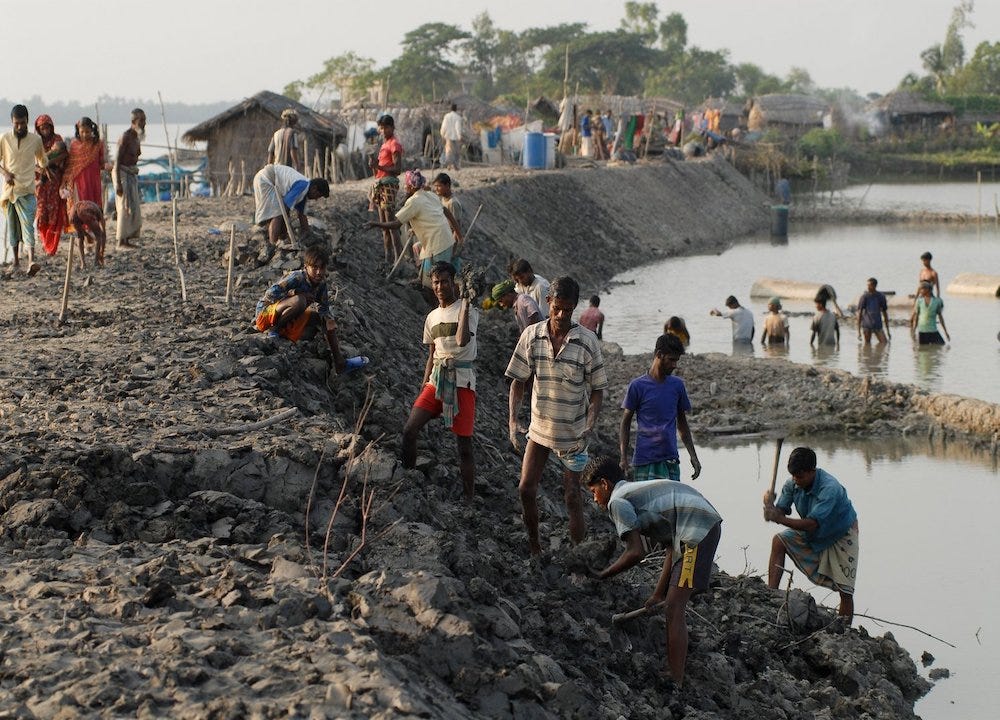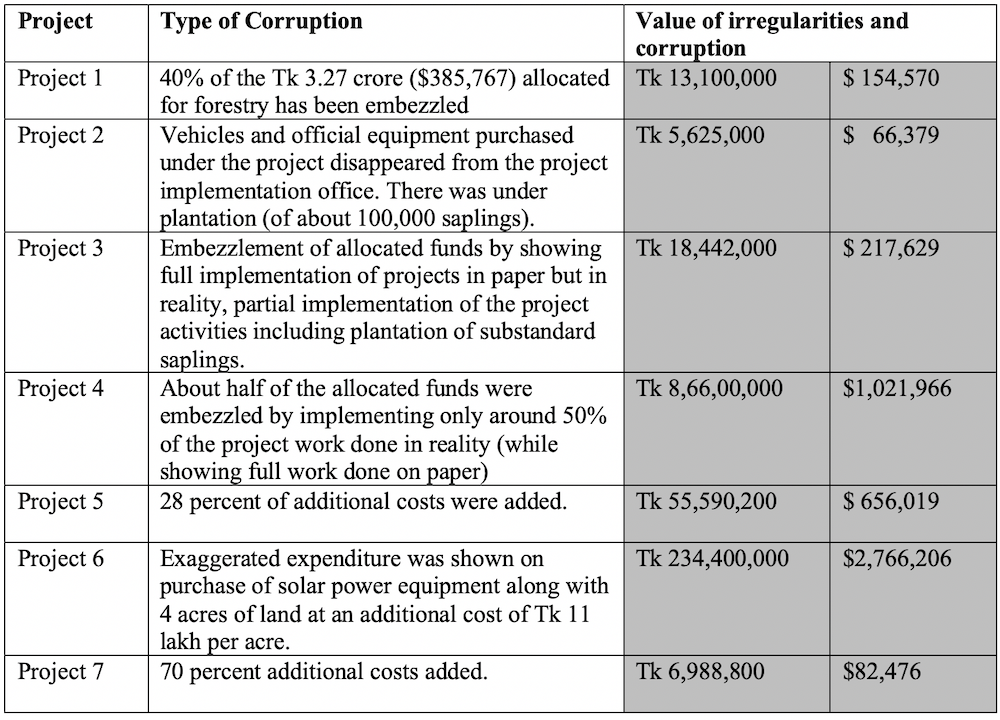
Last week, Transparency International Bangladesh published a quite remarkable piece of research which showed the high levels of corruption and embezzlement within seven climate change projects funded by the government as part of the Bangladesh Climate Trust Fund (BCCTF).
The seven projects — four involved afforestation and three renewable energy — cost a total of Tk 68.16 crore ($8,043,816) which according to the report accounts for 11% of the total BCCTF funding. Transparency International did not select the projects randomly but “according to implementing organisation, duration of implementation, type of work and amount of funding.”
The top line of their research report is that TIB found that 54% of the total — 3.71 crore ($4,375,312) had been “embezzled through various irregularities and corruption.”
The amounts of money are not large compared to much other corruption that takes place in Bangladesh — but the percentage of the total embezzled is pretty gobsmacking. Over 50% of the total money!
Here is information that is included in the report:

In addition, the report noted that:
- all the projects were approved on the basis of political recommendations;
- there are allegations that a minister’s personal assistant (unnamed in the report) received 10% of the money of three of the seven projects
- a former minister’s aide directly influenced the selection, approval and contractor selection of the implementing agency in one of the two solar powered streetlight projects.
- Although 650 kilowatts of solar power has been generated per day under one of the projects, the power is being wasted as there is no executive order to supply more than 50 kilowatts of electricity daily to the consumers. As there is no opportunity to connect the surplus power to the national grid under the project, since 2016 about 160 MW of electricity is being wasted every year.
- all 7 projects selected in the study have been monitored by officials from the local offices of the implementing agencies, but there is no practice of preparing and preserving written reports of such supervision.
- only 2 projects have been visited by a monitoring team from the Ministry,
Transparency International interestingly has a policy of not identifying the names of the projects it investigates — though the government can ask for details.
We should not be too surprised that the government has not yet done so
One wonders about what has happened in the other projects which amount to 89% of the total spent by the Bangladesh Climate Trust Fund (BCCTF).
//DB









